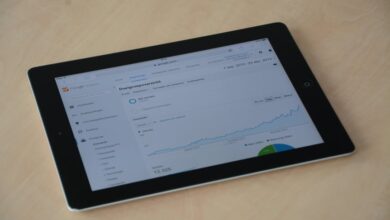Effective Budgeting and Bookkeeping Techniques 6785822502

Effective budgeting and bookkeeping techniques are critical for achieving financial stability. Individuals must grasp the fundamental concepts of budgeting and adhere to essential bookkeeping practices. The integration of technology into financial management has transformed traditional methods, offering new efficiencies. However, maintaining financial discipline remains a challenge for many. Understanding the nuances of these techniques can reveal significant insights into personal finance management and the path to autonomy. What strategies can truly enhance financial control?
Understanding the Basics of Budgeting
Effective budgeting is essential for maintaining financial health, and understanding its foundational principles is crucial for individuals and organizations alike.
Key components include establishing clear budget categories that reflect income and expenses.
Rigorous expense tracking allows for real-time insights into spending habits, empowering individuals to make informed financial decisions.
This structured approach fosters a sense of financial freedom and stability, essential for long-term success.
Essential Bookkeeping Practices
A robust bookkeeping system is vital for tracking financial transactions and maintaining accurate records.
Essential bookkeeping practices include regular reconciliation of accounts, meticulous categorization of expenses, and consistent updating of financial records.
These practices ensure transparency, facilitate informed decision-making, and ultimately empower individuals and businesses to achieve financial autonomy.
Effective transaction tracking further enhances the reliability of financial data, promoting long-term fiscal health.
Leveraging Technology for Financial Management
How can technology transform financial management practices for individuals and businesses alike?
By employing financial apps and cloud accounting solutions, users can streamline budgeting, enhance accuracy, and gain real-time insights into their financial health.
This technological advancement not only simplifies record-keeping but also empowers users to make informed decisions, ultimately fostering a greater sense of control and freedom in managing their finances.
Tips for Maintaining Financial Discipline
Financial discipline is a cornerstone of successful budgeting and bookkeeping practices.
To maintain this discipline, individuals should establish clear spending limits that prevent impulsive purchases. Additionally, setting specific savings goals fosters a sense of purpose and motivation.
Regularly reviewing financial progress reinforces commitment and accountability, ultimately empowering individuals to achieve greater financial freedom while adhering to their established budgetary guidelines.
Conclusion
In conclusion, effective budgeting and bookkeeping techniques are not merely financial tools; they are fundamental strategies for fostering long-term financial independence. Research indicates that individuals who adopt disciplined budgeting practices and maintain meticulous records are significantly more likely to achieve their financial goals. This correlation underscores the importance of integrating technology into personal finance management. By embracing these methodologies, individuals can not only gain insight into their spending habits but also cultivate a proactive approach to their financial well-being.



